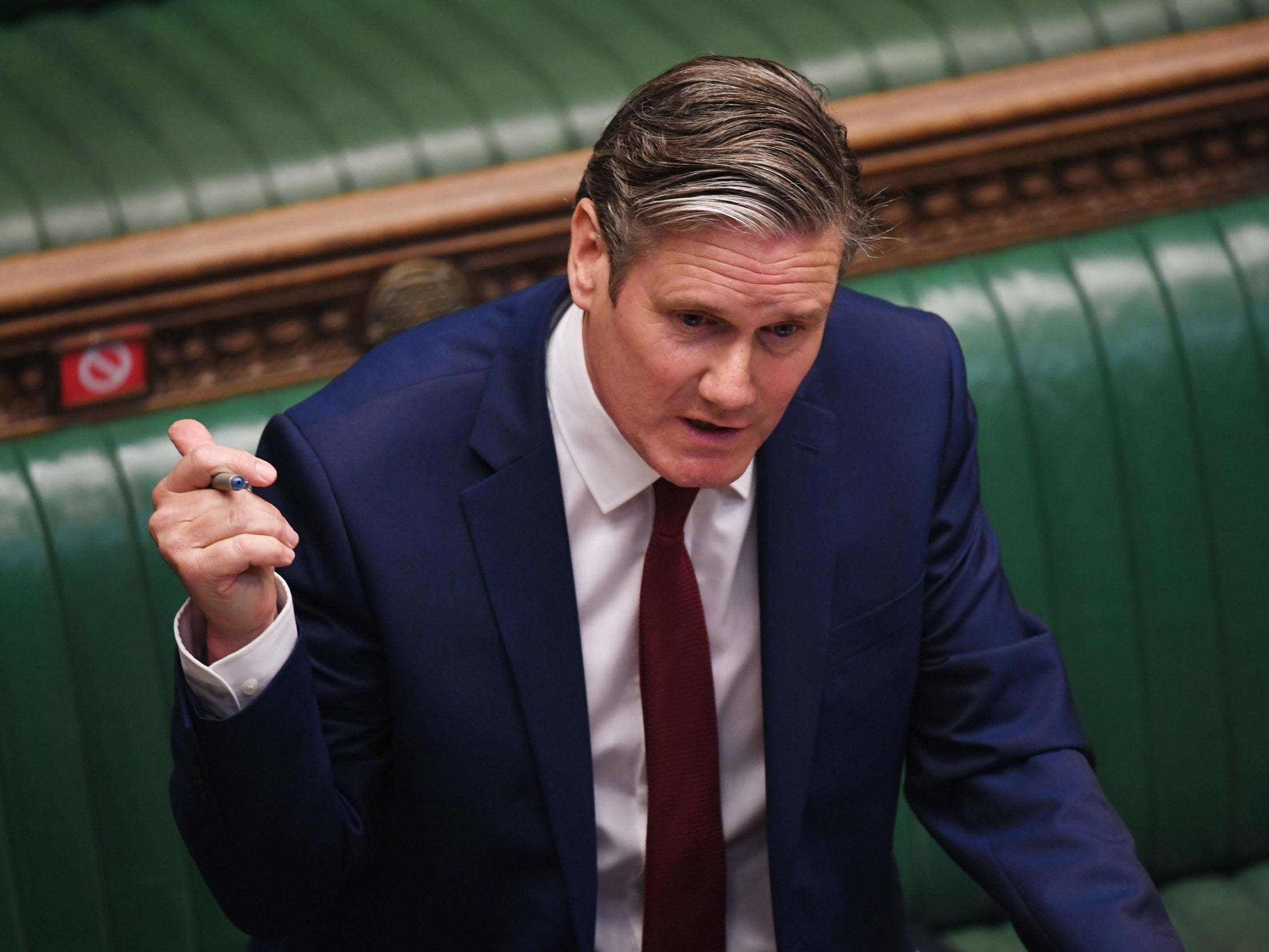Labour has to be more radical than ever over the climate crisis – we must fight for a greener economy
The party shouldn’t be advocating a return to a failed status quo. It must use this moment to argue for applying the principles of a Green New Deal across the whole of society


Your support helps us to tell the story
From reproductive rights to climate change to Big Tech, The Independent is on the ground when the story is developing. Whether it's investigating the financials of Elon Musk's pro-Trump PAC or producing our latest documentary, 'The A Word', which shines a light on the American women fighting for reproductive rights, we know how important it is to parse out the facts from the messaging.
At such a critical moment in US history, we need reporters on the ground. Your donation allows us to keep sending journalists to speak to both sides of the story.
The Independent is trusted by Americans across the entire political spectrum. And unlike many other quality news outlets, we choose not to lock Americans out of our reporting and analysis with paywalls. We believe quality journalism should be available to everyone, paid for by those who can afford it.
Your support makes all the difference.Labour recently launched a consultation on what a green post-pandemic recovery should look like. The shadow business & energy secretary, Ed Miliband, appealed to party members for their views on how a “zero carbon army” of workers should be deployed to transform our economy and “build back better”.
But just two days later, the shadow home secretary, Nick Thomas-Symonds, reiterated Labour’s demand for a government bailout of the aviation industry – which would allow the recreation of business-as-usual air travel – with some warm words about the climate crisis sprinkled on top.
It’s an approach that smacks of hypocrisy, and an unwillingness to take on the corporate interests driving climate breakdown. With airlines asking for hundreds of millions in state bailouts, while tens of thousands of workers lose their jobs, it’s clear the Tories have no interest in protecting jobs or the planet. It falls to Labour to take a strong stance for social and climate justice. The aviation industry must change - and shareholders, not workers, should bear the cost.
It’s not just aviation where Labour needs to be bold. As the UK emerges from lockdown, working-class communities need Labour on their side more than ever. The coronavirus pandemic has exposed the injustices at the heart of our society. Our most important workers are among the lowest paid. From nurses to bus drivers, working class people - particularly those from BAME communities - have been forced to live and work in environments that threaten their health.
It is this same exploitative system that is driving climate catastrophe. Labour members have long recognised that these injustices are intertwined - and last year they backed a plan to end them. At the last party conference, trade unions and party activists voted overwhelmingly for a Green New Deal involving total and rapid decarbonisation.
The 2019 manifesto translated this into a radical green Industrial Revolution, pledging unprecedented government investment to create one million green jobs and nationalise key industries for the twin goals of decarbonisation and democratisation. It was a bold vision for tackling the climate crisis that prioritised public well-being, summed up by a "Warm Homes for All" policy which would have cut emissions by 10 per cent, average fuel bills by over £400 and fuel poverty near-entirely. Labour’s programme was, however, dismissed as pie-in-the-sky.
Amid the ravages of the coronavirus pandemic, such radicalism now seems timely and unremarkable. The past four months have proven the power of the state to transform industries, provide a safety net and tackle injustices. It has shown that profound social and economic change really is possible.
Labour, then, shouldn’t be advocating a return to a failed status quo. It must use this moment to argue for a whole new social settlement – applying the principles of the Green New Deal across the whole of society. If they don’t, Rishi Sunak has already demonstrated the Conservatives’ willingness to co-opt this agenda.
But unlike the Tories, it’s not good enough for Labour to advocate planting trees with one hand and bailing out airlines with the other. Aviation is set to be the UK’s largest source of emissions by 2050. The idea that as-yet non-existent “clean jet fuel” can decarbonise ever-expanding airlines is a fantasy. Labour should be calling for the government to take public stakes in these failing firms as part of a sector-wide deal to reduce flights, with guaranteed retraining in green jobs for every worker..
This approach should go hand in hand with huge investment in renewable energy, clean and affordable public transport, flood defences and a resilient, well-funded health and care service. Delivering millions of secure, unionised, public sector green jobs would give everyone the chance to help build the new economy. Labour’s 2019 manifesto offers a blueprint for such a programme.
Covid-19 has shown that every community should have the right to clean air, cycling-safe streets and access to green space. Lockdown has demonstrated the need to insulate every home and deliver full-fibre broadband free at the point of use. The market has failed to deliver the security this crisis has shown we all need - now the state must step up, using the power of public ownership. Labour must build a consensus to reshape society - greener, fairer, healthier.
But the global crises we face necessitate international solutions. As the world’s poorest nations bear the brunt of climate breakdown, the UK must support the cancellation of Global South debt to enable investment in public health. Labour should be pressing the government to take strong action against tax evasion, end international investment in fossil fuels and rapidly step up financial support for a global shift to green energy.
This post-pandemic Green New Deal would transform our society - but the public is ready for change. Polling shows 72 per cent of those who back aviation bailouts want the state to take a share of rescued companies, and over 1,000 party members have signed Labour for a Green New Deal’s petition demanding Labour gets behind this approach. Looking to a post-pandemic future, only 9 per cent of people want life to ‘go back to normal’.
Running for Labour Leader, Keir Starmer promised to “hardwire the Green New Deal into everything we do”. Faced with dire economic need, we have a radical vision and strong public support. Now is the time to fight for it.
Join our commenting forum
Join thought-provoking conversations, follow other Independent readers and see their replies
Comments